|
Knowing when to ‘assert’ and when to ‘give-way’ are important attributes for any spiritual traveller. As human-beings, we can find ourselves in all kind of circumstance as the day unfolds and our life progresses. Much of this will be mundane, but occasionally reality will take a shocking turn for the worst! No one saw the Covid19 pandemic arriving and virtually everyone was taken by surprise – despite numerous horror films over the years expressing narratives involving dystopic futures on a planet ravished by some type of illness, plague or other torturous device! Usually, such story-lines involve society collapsing back into an armed feudalism where brutality is the order of the day. Only the strong survive by preying on the weak. Of course, due to poverty and asymmetric economic development around the world, many people already live in these hellish conditions. I would add that even within the so-called ‘civilised’ areas of the world – killing and barbarity still exists – although it is hidden to a far greater extent (like a bad dream that people would rather forget). Most people grow-up in the world learning to survive. Indeed, this is a crucial and necessary skill. It is not the skill of the huntsman or gathering skills of the scavenger – but rather the ability to navigate the character and personality of our fellow human-beings. Children can be cruel and adults can be deceptive – for many these observations are facts of life. This imbalance in the inner and outer environment must be dealt with in one way or another. Ch’an is not an easy undertaking because it requires a devoted self-effort to take on our own inner world before we set about attempting to make changes in our outer worlds. Many will attack and ridicule any attempt at self-discipline – but for the world to be a better place – self-discipline is exactly what is required. Looking within with clarity and steadfastness eventually develops to looking without with wisdom and knowledge! Our personal circumstance can vary wildly through our lives. Many will experience poverty, homelessness, abuse and all kinds of deprivations – whilst others will experience only affluence and relative well-being, etc. The point is that regardless of the differences that define our outer existence, the empty mind ground is exactly the same for all beings! Master Xu Yun (1840-1959) lived a life continuously ‘gazing’ at the empty mind ground without any deviation whatsoever! More to the point – Master Xu Yun integrated his expedient self (or that which will eventually fall away) with the permanent and ever-present empty mind ground! Regardless of the situation he found himself in, or the circumstances he had to traverse – Master Xu Yun judged human reality not from the ego infected with greed, hatred and delusion – but rather from the pure and clean empty mind ground which underlies all reality and permeates the universe without end! Knowing where to place oneself in the phenomenal world - so as to maximise compassion, wisdom and loving kindness – is exactly possessing the skill of ‘moving’ and remaining ‘still’ in all situations!
0 Comments
Master Xu Yun (1840-1959) inherited all Five Schools of Ch'an Buddhism. So respected was his spiritual attainments that he was even transmitted lineages that he had not formally trained within - but whose teachers recognised that his depth of insight, humility and compassion fully equalled the divine levels of attainment that their schools demanded! In other words, without going out of his room, he knew all things (to quote the 'Book of Changes'). Chinese culture is very different to that of the modern West - despite the obvious similarities and intersections. Within the schools of Chinese spirituality - individuals can live very long periods time - and lineages can be passed from long-dead Masters to living Teachers and Practitioners! There is no need to justify any of this, it is just how things are - pure and simple. Lineages are like streams that flow into mighty rivers and then the sea! A genuine lineage should have a compelling force all of its own that propels adherents toward the intended spiritual goal! A true lineage is like an ever-moving conveyor-belt that moves everything along - continuously - and in the same direction! We must all set a good example for our colleagues, students and descendants! If we cultivate virtue and set a good example - then by our pure actions we are 'adding' momentum to the lineages we represent!
Master Xu Yun (1840-1959) inherited all Five Ch’an School in China. Although Japanese and US scholarship often claim that Chinese Buddhism ‘died-out’ - and was re-imported from Japan – this is untrue and a product of bias and incomplete knowledge. Certainly, Master Xu Yun would not have agreed with this assumption. All the lineages of Chinese Buddhism have continued to survive through thick and thin as the forces of Chinese history have ebbed and flowed. When conditions are appropriate, the various lineages have become ‘public’, popular and well-known, but when conditions have changed, then these lineages have withdrawn into the background and become ‘private’ transmissions away from the public gaze. Regardless of whether a lineage was ‘private’ or ‘public’ - Master Xu Yun was sought-out to carry the Dharma forward – such was the purity of his being. He lived for two full cycles of the Chinese Zodiac (60-years X 2) because of his shining virtue. He inherited and passed-on many lineages of Buddhism – far more than within the Ch’an School – but his personal lineage was that of the Cao Dong School. This is the lineage he personally inherited from Master Miao Lian (1824-1907) and the lineage he was instructed to personally transmit to a special ‘inner’ lineage of lay and monastic practitioners. The Cao Dong lineage was the path that he personally preferred amongst all the others that he was an expert in understanding and teaching. The robe of the Cao Dong School is ‘black’ and on special occasions Master Xu Yun would swap his patch-work robe for the his carefully looked-after Cao Dong robe (pictured above). Master Caoshan (840-901) - the disciple of Master Dongshan (807–869) [the Founder of the ‘Cao Dong’ School] - visited the Temple of the Sixth Patriarch Hui Neng situated in the Caoxi area of Guangdong province (in Southern China). He then re-named the mountain he settled on (in the Fuzhou area of Fujian province) as ‘Caoshan’ in honour of the memory of Master Hui Neng. This is because the Cao Dong lineage flows all the way back to Hui Neng and is directly linked to his body which still sits upright in meditation in China today. ALL advanced Cao Dong must master the ability of passing from this life in the manner of Hui Neng. A monk asked Master Dongshan: “The Venerable Sir is unwell but is there anyone who is never ill?” The master replied: “Yes, there is.” The monk asked: “Does the one who is never ill still look at you?” The master replied: “(On the contrary,) the lot falls on this old monk to look at him.” The monk asked: “How does the Venerable Master look at him?” The master replied: “When the old monk looks at him, he does not see any illness.” The master then asked the monk: “When you leave this leaking shell, where will you go to meet me?” The monk could not reply... After saying this, he ordered his head to be shaved and (his body) bathed, after which he put on a robe and struck the bell to bid farewell to the community. As he sat down and passed away, the monks wept sadly without interruption. Suddenly, he opened his eyes and said: “Leavers of homes should be mindless of externals; this is true practice. What is the use of being anxious for life and death?” The master then ordered a stupidity-purifying mal and seeing that his disciples were strongly attached to him, he postponed (his death) for seven days. (On the last day,) he entered the dining hall behind his disciples and after taking food, said: “I am all right; when I am about to leave, you should all keep quiet.” Then he returned to the abbot’s room where sat cross-legged and passed away. A monk asked the Master Caoshan: “Every part of my body is sick; will you please cure me?” The master replied: “I will not.” The monk asked: “Why not?” The master replied: “It is impossible to teach you how to live and die.” The monk asked: “Does the master not have great compassion (for other people)?” The master replied: “Yes, he has.” The monk asked: “What should one do when all the six robbers come suddenly? The master replied: “One should also have great compassion.” The monk asked: “How to have a great compassion?” The master replied: “All should be cut down at one stroke by the sword.” The monk asked: “What next after (the sword has) cut them all down?” The master replied: “The realisation of sameness will then be realised.” After saying this, he burned incense sticks, sat (cross-legged) and passed away in his sixty-second year and at his dharma-age of thirty-seven.
Extracted from the Transmission of the Lamp This picture featured Richard Hunn with his young daughter in the UK (provided by his widow Taeko), and was taken during the 1970s. Charles Luk died in late 1978 (aged 80 years old). There are very few photographs of Charles Luk - Upasaka Lu Kuan Yu - in the public domain, but here we see a picture of him in his later years. Of course, Master Xu Yun (1840-1959) looks down upon the family from a photograph affixed to the wall.
|
Archives
March 2024
Categories
All
|
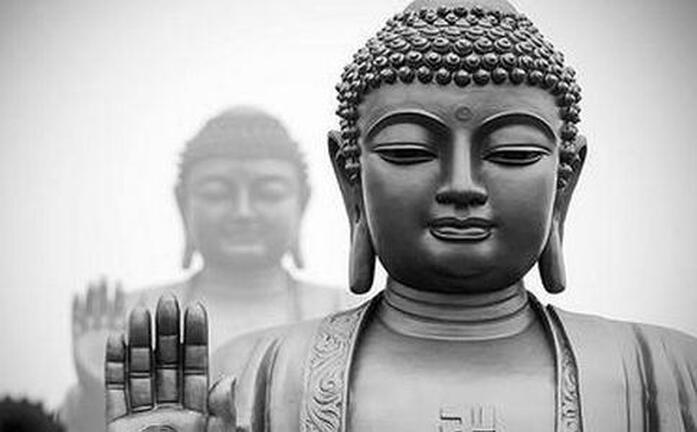
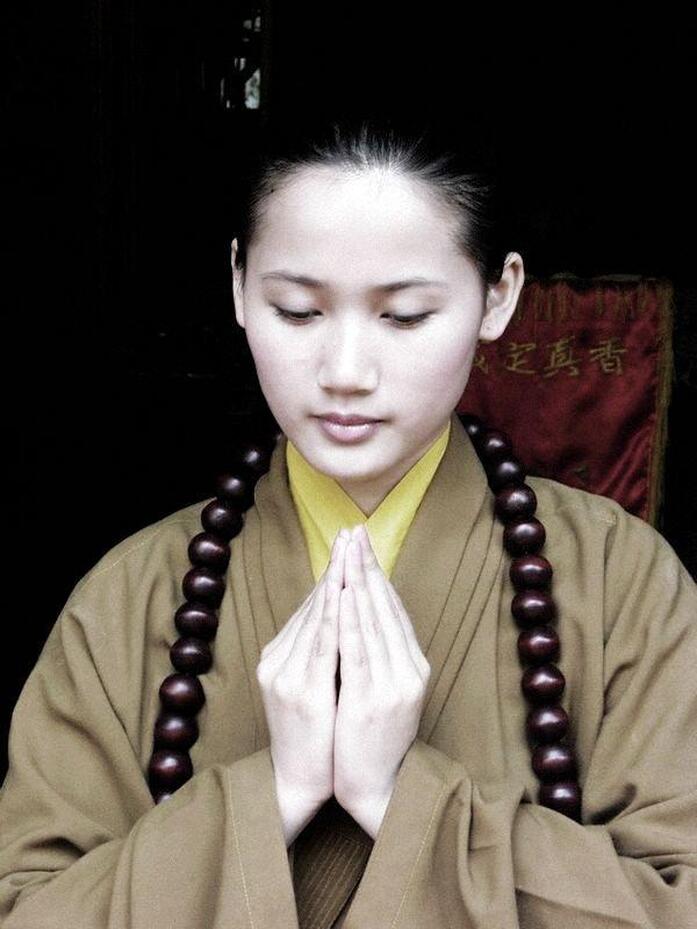


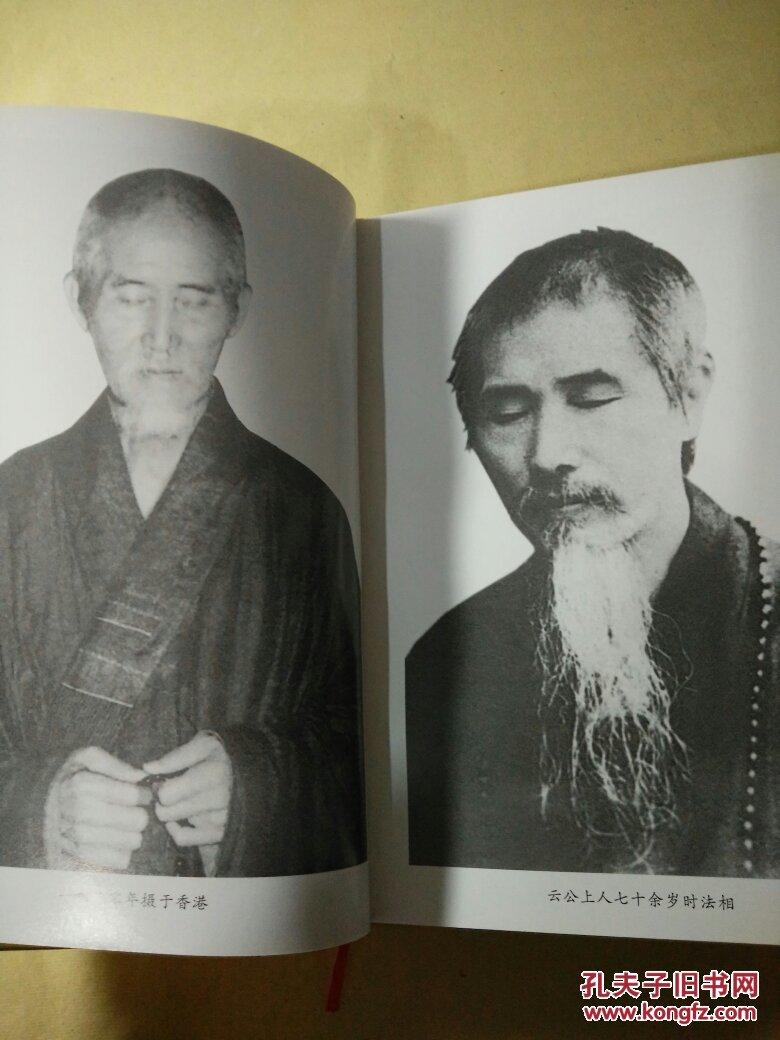
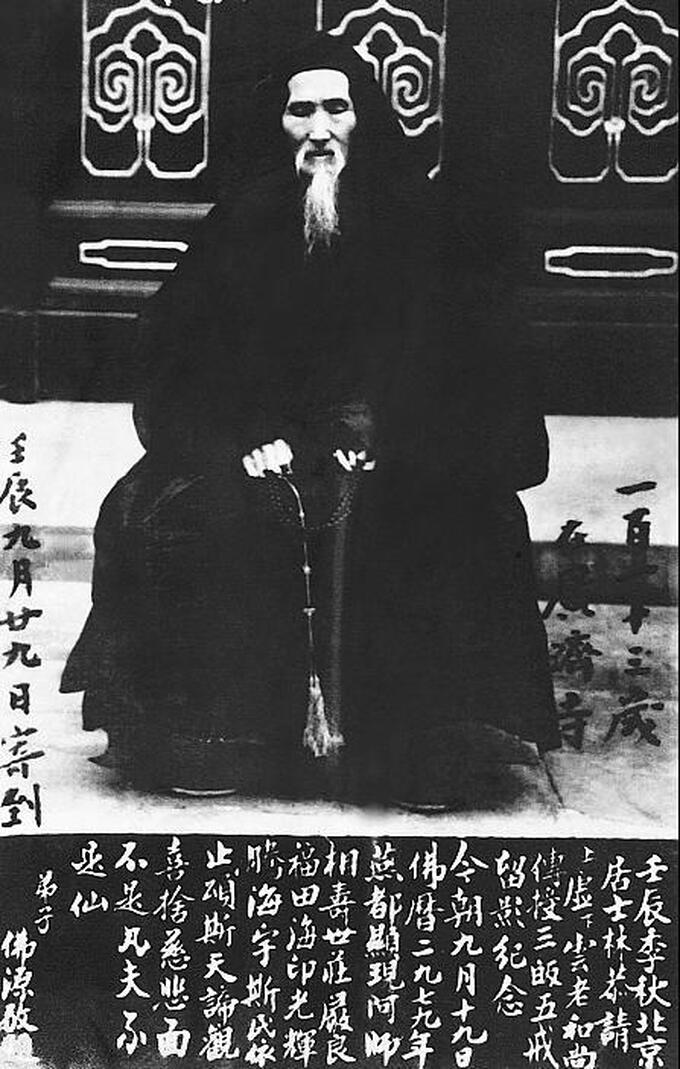
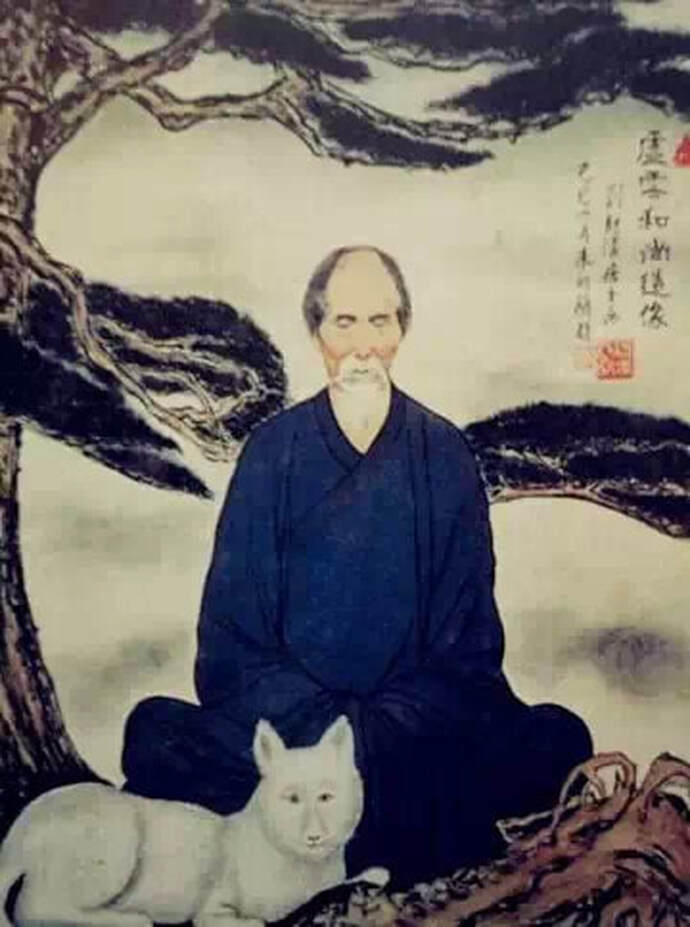
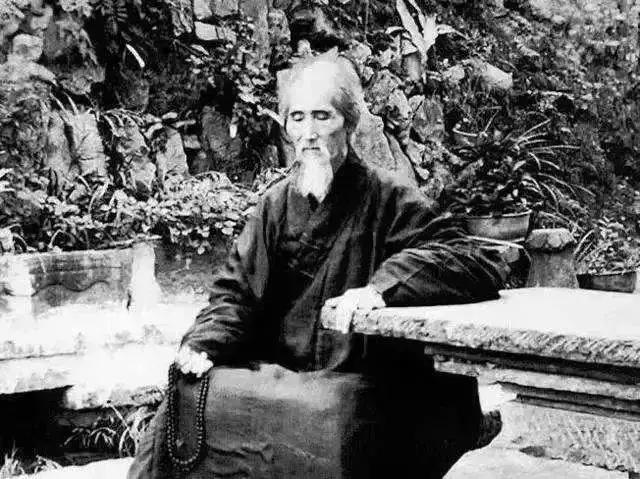
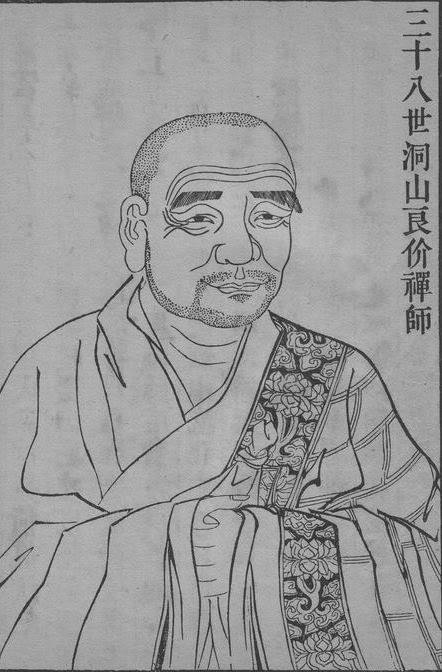
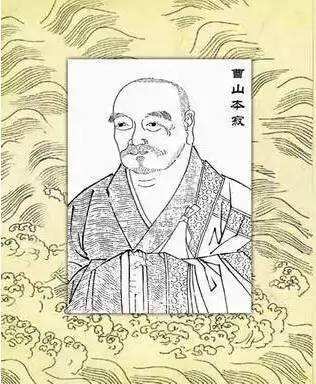
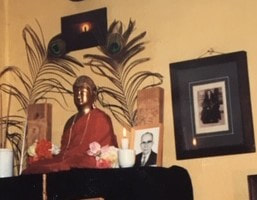
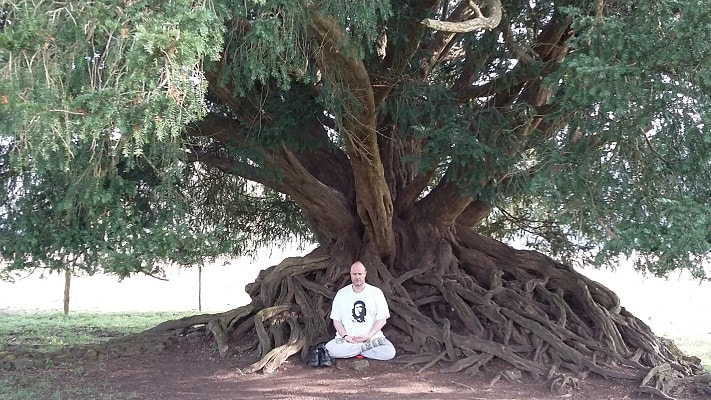
 RSS Feed
RSS Feed